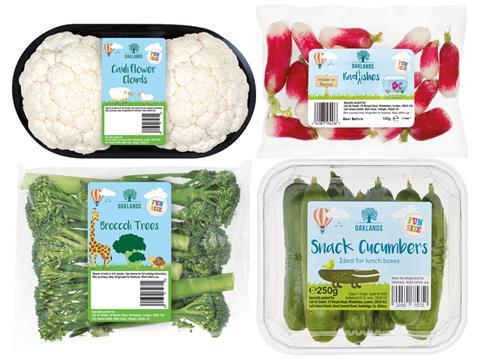
In last week’s issue of The Grocer we looked at consumption of key nutrients in our Protein category report. Using specially commissioned research from Kantar, it was interesting to see, as we reported, that consumption of sugar was down, though the Kantar figures also showed that we are still eating more sugar than we should. It was not the only key nutrient on which we’re failing though. We’re equally guilty of eating too much saturated fats (where consumption has gone up) and also too much protein (in our desperate bid to stay fuller for longer).
What we didn’t investigate in any detail was the nutrients we’re not eating ENOUGH OF. Most notably our consumption of fibre is almost half the recommended intake. And we’re also undereating when it comes to carbohydrates.
This under consumption is not just down to stripping our bread and pasta of its fibre. It’s the corollary of our woeful intake of fruit and vegetables. And particularly vegetables. Separate research by Kantar shows that we are eating 7.5g or roughly a third of the 20g of vegetables we should. Despite all that time and money the government has spent.
That’s why the Food Foundation has stepped in, with its Peas Please Veg Summit today at City Hall in London. (Similar events also took place in Scotland, Wales and Northern Ireland.)
The Food Foundation is a relatively new organisation but it seems to have had a pretty telling impact, already. I say that partly based on the size (it was packed) and quality of the audience and panellists, including Lord Krebbs, Sir John Hegarty (the advertising legend), Hugh Fearnley-Whittingstall, Sheila Dilllon, John Shropshire, OBE, as well as leading politicians, NGOs and other industry figures.
But mostly its impact lies in congregating and then eliciting new pledges to promote increased consumption of vegetables from such a wide cross section of industry organisations (not just supermarkets but suppliers, growers, foodservice companies and politicians.
On the one hand the need to seek these new pledges seems counterintuitive. If you look at what’s going on it feels like there is significant momentum behind vegetables.
There are more vegans and vegetarians than ever. Avocados and kale have greater celebrity endorsement than any brand you could shake a celery stick at. And chefs like Ottolenghi have shown just how delicious veg can taste if you apply creativity (and time) to preparing them. We’ve also got veg now popping up in our smoothies and hidden veg in our brands. Plus, Aldi and Lidl’s counterintuitive move to make fruit and veg the focus of its in-store marketing has forced the big four to start offering value in addition to impeccable class 1 standards. There’s even been initiatives by retailers to sell sub-standard produce at lower prices - the wonky veg phenomenon- a move that has gone down a storm with consumers.
On the other hand imagine how bad the situation would be without these moves. And having more such moves will only help nudge consumers in the right direction. One such pledge came from Lidl which has vowed to increase the number of mini vegetables under its ‘fun-sized’ brand. Designed to appeal to young children, a year ago there were four products (including its unicorn carrots).
Today there are 17 fun-sized vegetables in the range. That’s a real commitment and they wouldn’t be rolling it out if it wasn’t having an impact. Fresh produce director Emma Byrne encouraged rivals to follow suit. Similarly Tesco’s Tim Smith used the opportunity to encourage rivals to measure food waste because, as we’ve seen, the lower cost of wonky veg can have a meaningful impact on vegetable consumption. And there were other pledges too from the likes of Sainsbury’s, Nestle, Mars, Coop, Simply Fresh. (You can read about the pledges from the panel I hosted here.) And that’s just grocery.
It’s easy to be cynical about these little nudges. One question from the floor attacked the pledges for not going nearly far enough. And he’s right. When you consider how far there is to go each pledge will do very little. But as Sir John Hegarty pointed out to me, when he was first advising public health on its anti-tobacco campaign, to expect fundamental changes in human behaviour can not be measured in a couple of years but over the course of decades.
Interestingly Hegarty and Hugh Fearnley-Whittingstall, who were judging a kids’ competition for the best ad campaign promoting veg, were so inspired they were concocting plans to make a real-life campaign happen using funds from a levy on junk food. Given that just 1.2% of ad spend is on fruit & veg (almost all of it by the supermarkets) it’s an intoxicating thought as to what might be achieved. On the other hand it’s significant that unlike other divisions of the AHDB the horticulture levy isn’t used for advertising. And growers are unlikely to support the move. As Sir John Shropshire said to me “I don’t want to spend my wafer thin profits promoting sales of lettuce when I only have 25% of the market.”
In his vision Sainsbury’s Alex Kyriakides said we needed to make vegetables sexy and envisaged the Milk Tray man delivering a bunch of… courgettes! That’s a campaign that might well go viral but only because it would make us all laugh!






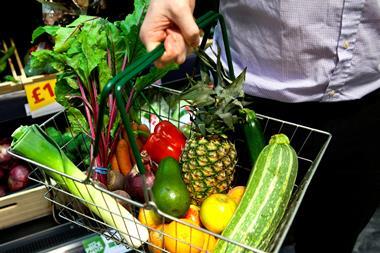
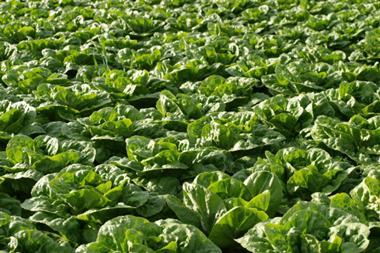
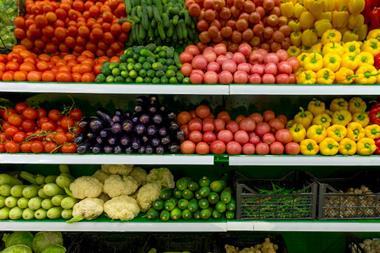
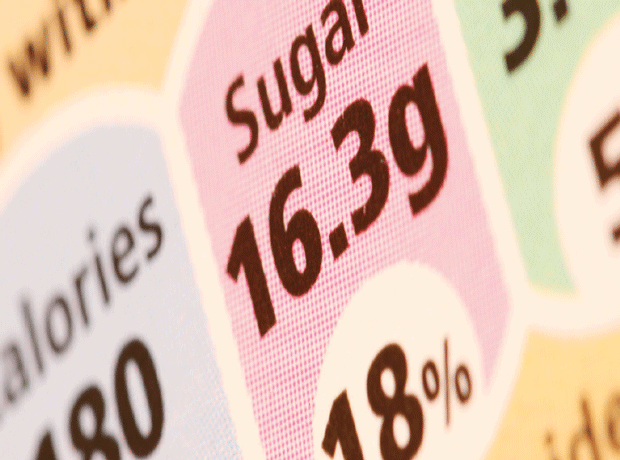
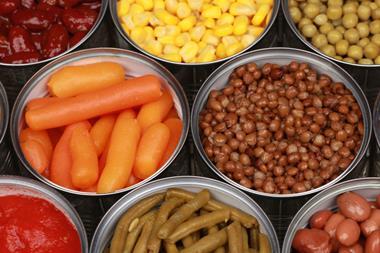







No comments yet